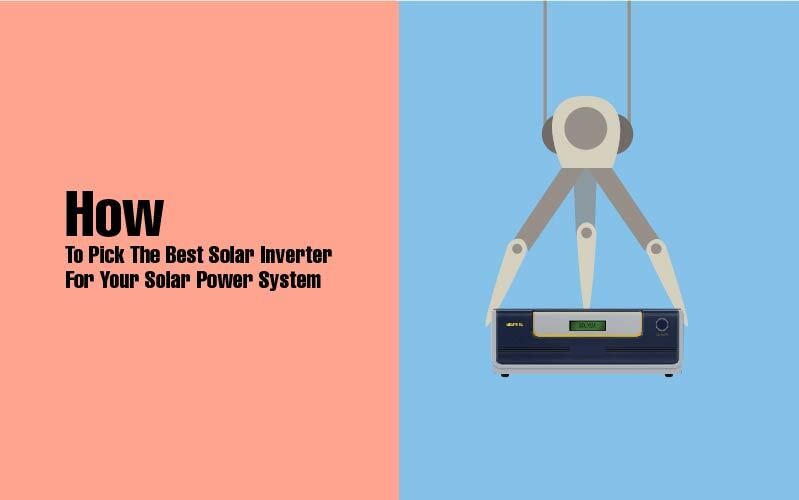Do you know that out of all the components of your solar panel grid system, the solar inverter is most likely to wear out first?
Yes, a typical solar inverter usually lasts for ten to twelve years which is earlier than any other component of the solar rooftop system. This makes choosing the best one essentially critical.
But, how do you pick the best solar inverter?
Well, we have done the hard yards for you and created this post that will give enough information on buying a solar inverter that suits you the best. But, before we move further, it is important that we have background information about the functions of a solar inverter and its types.
Let’s go.
What Does A Solar Inverter Do?
A typical solar inverter or PV inverter converts the variable DC (Direct Current) from the solar panel into AC (Alternating Current). Thus, changing solar energy into a usable form so that the electrical appliances in your houses can be powered.
Besides the primary function of changing energy into utility form, a solar inverter maximises the output and protects the grid from the condition of islanding.
What Are The Types Of Solar Inverters?
Numerous solar inverters are available in the market with different shape, size and rating. However, these are broadly classified into two categories:
- Based On Functionality
- String Inverter: This solar inverter is used with solar panels which are connected in a series.
- Central Inverter: This is simply a bigger version of string type solar inverter which is used with a large number of solar panels connected in not just one but many series.
- Micro-Inverter: This type of inverters are of small size and used with a single solar panel. As they are connected to each solar panel, they yield maximum output than string or central inverters.
- Based On Interplay
- Stand Alone Inverter: These are not directly connected to any solar panel on the system. Rather, they are connected to the battery that is charged by the solar panel. This type of inverters is suitable for places where no electricity is available as they are independent of the electric grid and unaffected by power cuts.
- Battery Backup Inverter: Also known as Dual Inverter or Grid-Interactive Inverter, these inverters store energy from the solar panel in a battery and later convert it into AC. These are also connected with the local grid system so that the excess energy stored is transferred to the local grid itself. Additionally, these can work normally even during power cuts.
Note: A new technology of Hybrid Inverter has come up which charges and discharges the battery using DC couple. However, as it is relatively new, it has not yet fully unfolded itself in the Indian market.
What To Look For In A Solar Inverter?
The below-listed factors are to be considered for a good solar inverter:
- IP Rating (Ingress Protection Rating): Solar inverters work under grinding conditions of high temperature, excessive wind, voltage fluctuation. So, it is important to get a solar inverter which can withstand all the adverse conditions. The IP rating is a two-digit rating that defines the withstanding potential of a solar inverter.
- Warranty Period: As mentioned above, the life of a solar inverter is between ten to fifteen year. Hence, you must avail to the highest warranty period to avoid any trouble later.
- Efficiency: It defines the output energy generated by the inverter and higher the efficiency, more is the output. Thus, you must look for a solar inverter with an efficiency that matches your output needs.
- Battery Backup Duration: Solar inverters come under a number of ranges based on the backup duration they offer. You must pick the one that suits your location and energy consumption.
- Circuit Design and Output Form: Based on the circuit design, solar inverters give output in various waveforms such as sin wave, square waves and so forth, Out of all those, inverters that generate the sin wave are considered to be more reliable and efficient
- Power Consumption: Solar inverter utilises energy for its charging section. Make sure you buy the one that uses the least energy.
Do give our blog a read for all your solar-related questions. You can also check out other interesting updates on solar on our Facebook page (facebook.com/zunroof)
Reach out to us by filling the form below:

